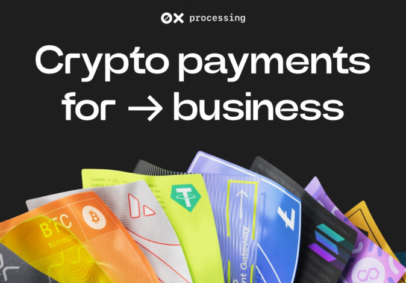Is Your BTC Transaction Delayed by Congestion? Methods to Speed up Your Transfer!

Special material with the opinion of professionals. As mining experts, ViaBTC is one of the largest mining pools in the world. Experts will talk about four methods that will help speed up the transfer process in the Bitcoin network.
Along with the launch of the Bitcoin Ordinals protocol, NFTs have recaptured the spotlight in the crypto industry. For NFT projects and investors, the Bitcoin network is the destination of a new gold rush. In light of the bankruptcy crises facing many banks in the West since March, investors have sought refuge in gold and Bitcoin, which has sent the BTC price soaring. This positive market sentiment has led to more frequent trading activities. In the meantime, the emergence of NFTs on the network has taken up a significant amount of space on the Bitcoin blockchain, resulting in severe congestion that delays the confirmation of BTC transfers.
Over the past few months, unconfirmed transactions, transaction size, and transaction fees on the Bitcoin network have remained high. According to BTC.com, there are now over 38,000 unconfirmed BTC transactions, with the average block size reaching a record high of 2.52 Mb on February 12.
The congestion makes it difficult for users to transfer coins on the Bitcoin network. Based on the default transaction fee, it often takes an hour or even hours for a transaction to be packaged by miners, which is bad news for users with certain needs. For instance, in a face-to-face transaction between two strangers, it is embarrassing to ask both to wait for several hours until the transaction is confirmed. For users wishing to ramp up their margin, if the funds arrive several hours later, their position may have already been liquidated.
So, what methods can we employ to shorten the confirmation period?
1. Jack up your transaction fee
The real reason why we have to wait for our transactions to be confirmed lies in low fees. On the Bitcoin network, unconfirmed transactions will enter the mempool, waiting for miners to package the transaction information into a new block. Miners will package transactions based on their financial interests, i.e., the amount of the transaction fee.
As such, if you wish to ask miners to package your transfer as soon as possible, increasing the transaction fee is the fastest and most effective method. However, this approach does require additional expenses, which can be a huge burden for users engaged in frequent trading activities.
2. RBF protocol
RBF, or Replace-by-fee, is a protocol of the Bitcoin mempool that allows unconfirmed transactions to be replaced or compressed into a new transaction using other transactions.
If your transaction has not been confirmed by miners for a long time due to the low transaction fee but has not been discarded either, you may need to resort to RBF, which essentially replaces the transaction saved in the mempool with a new transaction with a higher transaction fee to facilitate confirmation.
.png)
Moreover, RBF also enables two transactions to be combined into one before the first transaction is confirmed. Although this replacement requires a higher transaction fee than the default, it does save a significant amount of bytes and transaction fees. Today, different types of RBF functions are available in Bitcoin Core and other mainstream crypto wallets, with Opt-in RBF being the most common RBF feature.
3. Child Pays for Parent (CPFP)
Child Pays for Parent (CPFP) uses the output of an unconfirmed transaction and gives it a higher transaction fee. At this point, if a node were to package the child transaction, it must also package the parent transaction with low fees. As such, CPFP encourages miners to include both transactions in one block.
Miners would usually calculate the overall cost of the parent and child transactions and package the lower-cost transaction (the parent transaction delayed by congestion) to get the higher-cost transaction (the child transaction), which speeds up the confirmation of delayed transactions.
4. Transaction accelerator
All of the above three solutions require more transaction fees to speed up confirmation, which is not ideal for regular Bitcoin holders. So, are there products that could save us from the long waiting periods while speeding up our transactions for free?
In today’s crypto space, mining pools handle the majority of packaging work and can accelerate transactions by pulling them from the mempool and placing them in the queue for the next block. For regular Bitcoin holders, the good news is that some pools have introduced Bitcoin transaction accelerators, which often come with free and paid versions.
For instance, ViaBTC, a leading Bitcoin mining pool, launched its Transaction Accelerator back in 2018, providing all Bitcoin holders with free acceleration opportunities of up to 100 transactions per hour, as well as paid acceleration services. To try out ViaBTC’s Transaction Accelerator for free, users just need to submit the TXID of an unconfirmed transaction containing at least 0.0001 BTC/KB. Users can also choose the paid feature when the 100 free spots are used up.
Additionally, Bitcoin accelerators such as 360 Bitcoin Accelerator and BitAccelerate can also be used to speed up Bitcoin transactions. However, they may have a higher failure rate due to a lower number of nodes broadcasting transactions and the lack of mining pool support.
We’re confident that, with the four solutions above, more Bitcoin holders could speed up their transfers and enjoy seamless trading.

